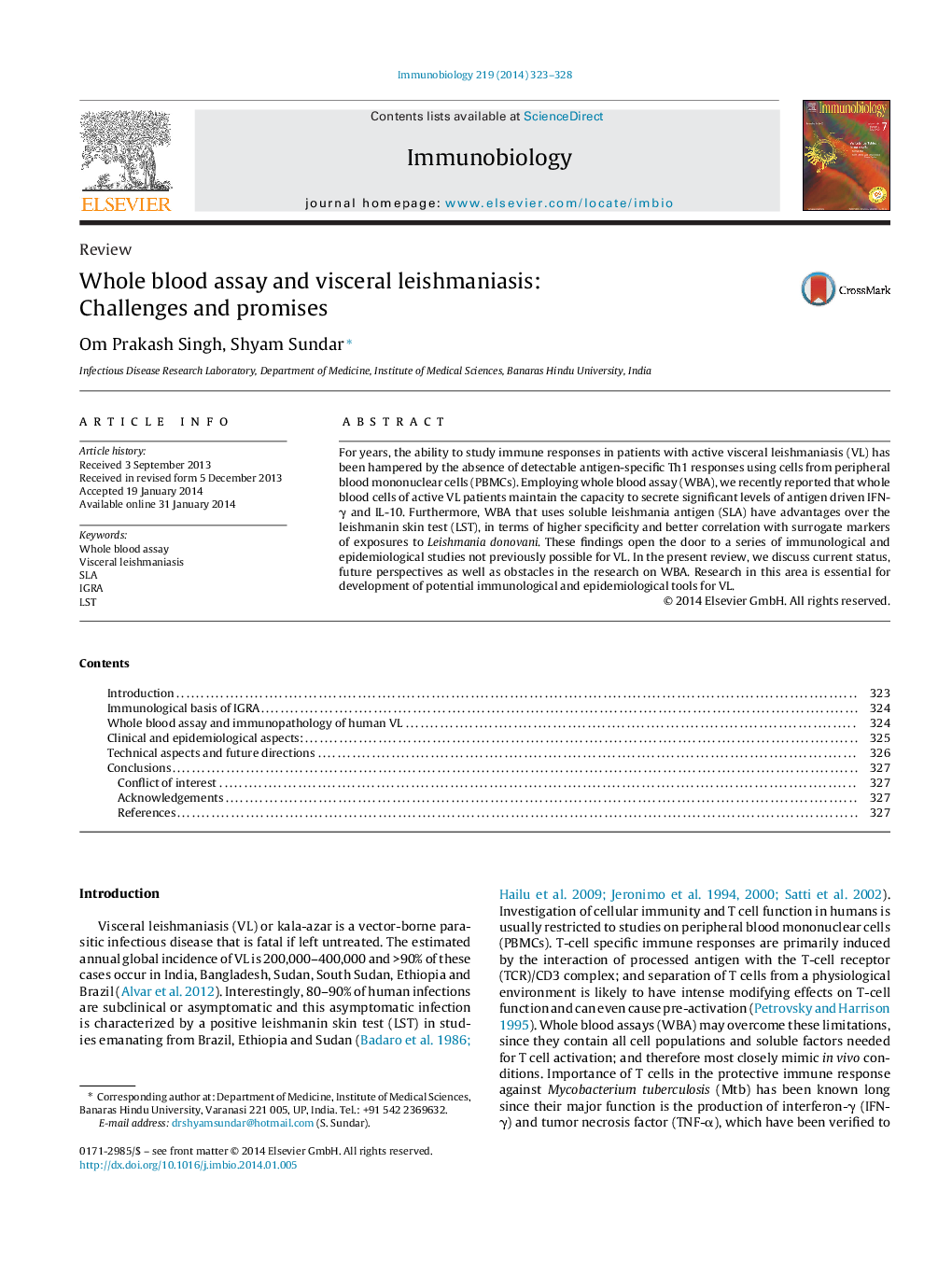| Article ID | Journal | Published Year | Pages | File Type |
|---|---|---|---|---|
| 2183268 | Immunobiology | 2014 | 6 Pages |
For years, the ability to study immune responses in patients with active visceral leishmaniasis (VL) has been hampered by the absence of detectable antigen-specific Th1 responses using cells from peripheral blood mononuclear cells (PBMCs). Employing whole blood assay (WBA), we recently reported that whole blood cells of active VL patients maintain the capacity to secrete significant levels of antigen driven IFN-γ and IL-10. Furthermore, WBA that uses soluble leishmania antigen (SLA) have advantages over the leishmanin skin test (LST), in terms of higher specificity and better correlation with surrogate markers of exposures to Leishmania donovani. These findings open the door to a series of immunological and epidemiological studies not previously possible for VL. In the present review, we discuss current status, future perspectives as well as obstacles in the research on WBA. Research in this area is essential for development of potential immunological and epidemiological tools for VL.
